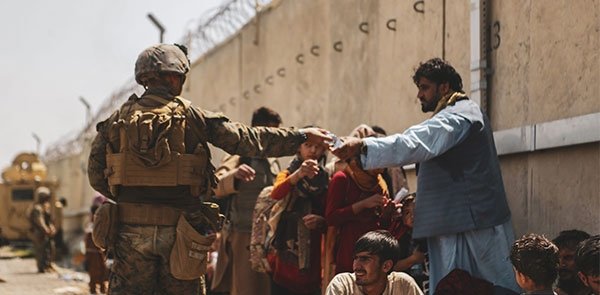|
Monday, Oct. 18 // 11:00 a.m.–12:30 p.m. (ET)
In the second GMES seminar this Fall, we host Michael Reynolds and Alp Yenen, who will each present new research on the formation of the modern Middle East during the Ottoman Empire’s collapse and the establishment of post-Ottoman states.

Monday, Oct. 18 // 2–3:00 p.m. (ET)
The Wilson Center Supply Chain Initiative launches a paper that reflects the dialogue sustained by a high-level group of stakeholders in the summer of 2021 and argues that the United States must take a number of key steps to make the critical minerals supply chain more resilient. Join us for an engaging discussion of the challenges and opportunities concluded by this report.

Monday, Oct. 18 // 2–3:00 p.m. (ET)
In Putin's Labor Dilemma, Stephen Crowley investigates how the fear of labor protest has inhibited substantial economic transformation in Russia. Putin boasts he has the backing of workers in the country's industrial heartland, but as economic growth slows in Russia, reviving the economy will require restructuring the country's industrial landscape. At the same time, doing so threatens to generate protest and instability from a key regime constituency. However, continuing to prop up Russia's Soviet-era workplaces, writes Crowley, would likely lead to continued economic stagnation, also threatening protest. Hence a political economy stuck between stability and stagnation.

Monday, Oct. 18 // 4–5:30 p.m. (ET)
America's World War II military was a force of unalloyed good. While saving the world from Nazism, it also managed to unify a famously fractious American people. At least that's the story many Americans have long told themselves. Divisions offers a decidedly different view. Historian Thomas A. Guglielmo argues that the military built not one color line, but a complex tangle of them.

Wednesday, Oct. 20 // 10–11:00 a.m. (ET)
Britain Alone is a story of a nation's attempt to reconcile its past and present in a confident national identity—in the description of the American statesman Dean Acheson, to find a role after the end of empire. It is a story of inflated ambition rubbing up against its diminished circumstance, of a glorious past and an unforgiving present, and ultimately of Britain’s effort over many decades to come to terms with its place as an important, but second rank power. It's a story that touches at every turn neuralgic issues of national pride, identity and history.

Wednesday, Oct. 20 // 12–1:30 p.m. (ET)
Despite growing tensions in many other parts of the world, the situation in Belarus continues to command global attention. The rigged presidential elections of 2020 and ensuing mass protests have led to increased repression and a violent crackdown on civil society. One year after these momentous events, Aleksandr Lukashenko appears to have weathered the storm and even developed additional institutional responses to ensure his regime’s political survival. Panelists will discuss the unique challenges this crackdown has posed for civil society, what a transfer of power may look like, and how these events have continued to affect Belarus's foreign policy.

Wednesday, Oct. 20 // 1:30–3:00 p.m. (ET)
Join the Wilson Center’s Polar Institute, with the Dartmouth Institute of Arctic Studies and Hart Leadership Program, for a book talk and panel connecting policy, cultural safety, and food, water and environmental security in the Arctic region.

Friday, Oct. 22 // 1–2:00 p.m. (ET)
Lee Farrow’s new book The Catacazy Affair and the Uneasy Path of Russian-American Relations details the life of Constantin Catacazy, Russian Ambassador to the United States from 1869-1871. This book talk will explain the affair as one of the first significant complications between the United States and Russia.

|





